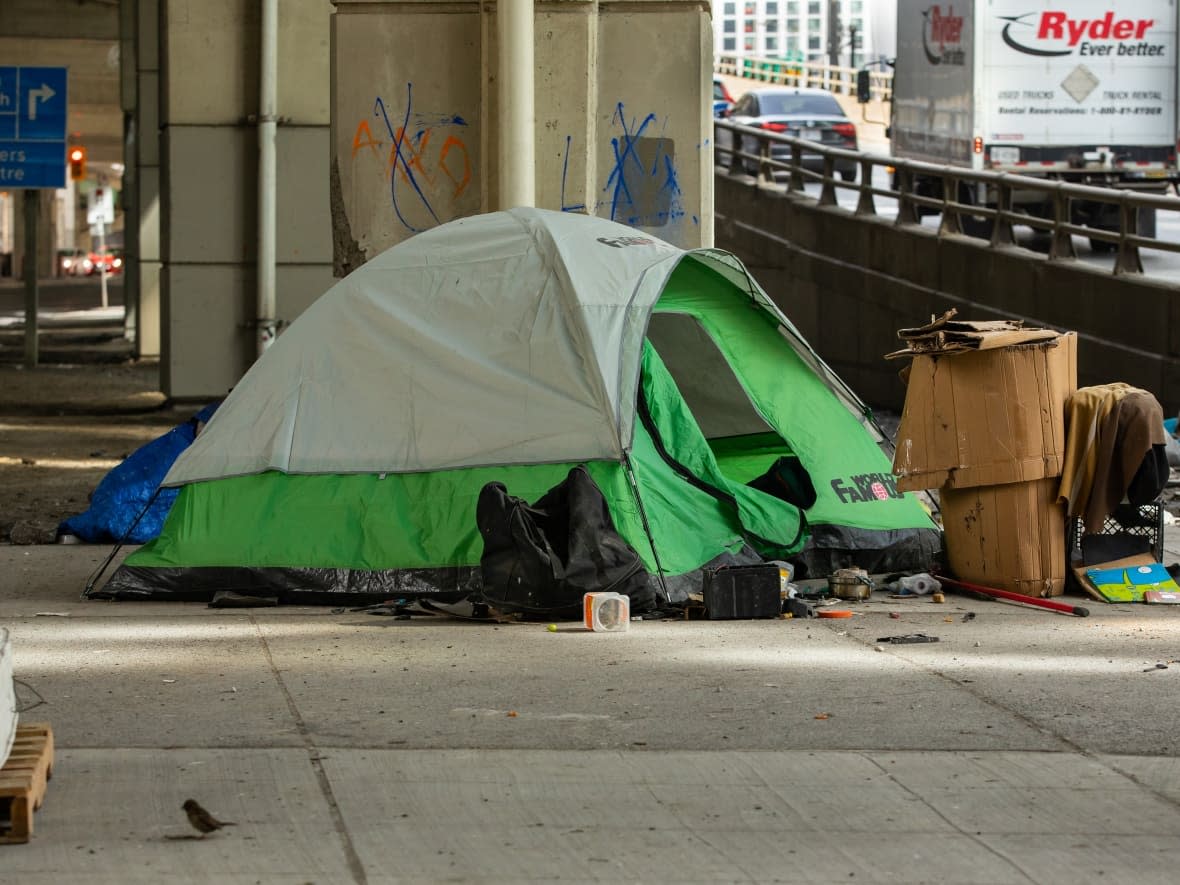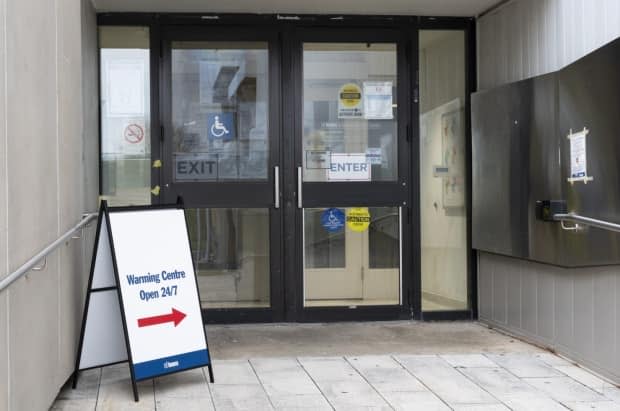Toronto city council declares homelessness an emergency

Toronto city council has declared homelessness an emergency in the city and has agreed to change when warming centres are activated in winter months.
At its meeting Friday, council voted to open warming centres when the temperature falls to –5 C or colder or when Environment Canada issues freezing rain, snow squall, winter storm, snowfall and blizzard warnings.
Previously, the city opened warming centres when the temperature dipped to –15 C or the wind chill made it feel like –20 C, and when the medical officer of health issued an extreme cold weather alert.
The change means warming centres could be open an average of 19 more days per year, but opening them will depend on available space, staffing and funding, the city said in a news release on Friday.
According to the city's economic and community development committee, which approved the declaration before it went to council, deeming homelessness an emergency is symbolic. But it sends a message about the urgency of the crisis in Toronto and the need to do better.
"Council's declaration of an emergency does not trigger the immediate flow of additional funds or resources from other orders of government," the city said the release.
On its shelter system flow data web page, the city says a total of 10,811 people have been "actively homeless" in Toronto in the last three months. On its daily occupancy and overnight service usage web page, the city says more than 8,800 people used its emergency homeless shelters on Thursday night.
'More needs to be done together,' deputy mayor says
"We are doing everything we can as a city government to help people experiencing homelessness," Deputy Mayor Jennifer McKelvie said in the release.
"Toronto will continue to be a strong partner with the government of Canada and the government of Ontario when it comes to getting housing built, providing safe shelter for those in need and helping residents move from homelessness into safe and supportive homes," she added.

McKelvie thanked the provincial and federal governments but said "more needs to be done together— with our community partners — to ensure that those in need have access to shelter, housing and health supports."
Council also approved other changes recommended by staff to its winter services planning. The changes include creating a new inter-divisional city agency working group to identify publicly and privately owned locations for use as warming centres and 24-hour respite sites.
Warming centres, usually in city buildings or community recreation centres, are part of what the city calls a surge response when there is heightened demand for shelter spaces during cold or inclement weather. They're also there for people less likely to access traditional shelter spaces and can be accessed by walk-in, without a referral.
The city said it needs financial support from other levels of government to open and operate warming centres as of Jan. 1, 2024. Council also decided it will ask the federal and provincial governments for $5 million to allow the city to continue its winter services beyond Dec. 31, 2023.
And it decided it will ask the provincial and federal governments to add $20 million to the Canada-Ontario Housing Benefit (COHB) in 2023-2024 to help between 1,600 and 2,000 households leave the shelter system and move into permanent housing. The COHB, a portable housing benefit, helps people to access permanent housing.

Coun. Shelley Carroll, chair of the economic and community development committee, said she wants the plan passed by council on Friday to be realized in full.
"Everyone deserves access to safe and reliable shelter," Carroll said.
"We must secure more sites for warming centres. We must enhance access to the shelter supports we already have in place. And of course, we must be relentless in our push to build a wide range of truly supportive and accessible housing."
With its vote on Friday, Toronto joins other Ontario cities in declaring homelessness an emergency. On April 12, the city of Hamilton declared a state of emergency in its city related to homelessness, opioid addiction and mental health.


